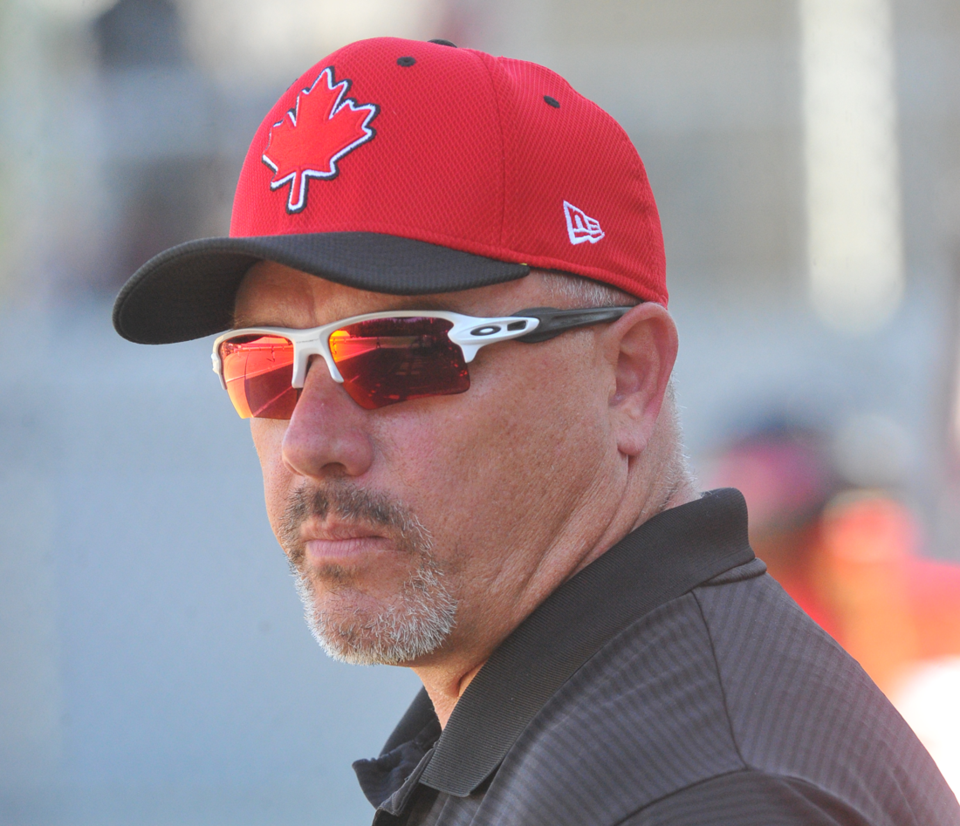YORKTON - Keith Mackintosh of Melfort has been named head coach of the Junior Women’s National Team program for the next WBSC U18 Women’s Softball World Cup cycle from 2023-2025.
Mackintosh said it’s a bit unusual for a national coach to come out of Saskatchewan, but he had been involved nationally for several years, and when the U18 position opened, he applied.
“I threw my hat in the ring,” he said adding, “I was fortunate to get the gig.”
He served as an assistant coach in 2013, and 2015 before becoming head coach for the 2017 cycle and most recently leading Canada to its first-ever medal at the Junior Women’s level with a bronze medal at the 2019 U19 World Cup. He is a National Coaching Certification Program (NCCP) Competition – Development Certified coach.
Mackintosh takes over the program just as a major change has taken place in terms of World Cup play, moving from every two years to every four.
The next U18 Women’s World Cup cycle will consist of five continental qualifiers to be held in 2023, followed by the group stage (18 teams divided among three different locations) in 2024 and the World Cup Finals (eight teams) in 2025.
The change will fundamentally change how he builds a team.
Under the old system of playing every two years “it was pick a team and play,” he said, likening very much to World Junior Hockey.
“There was no real opportunity for development, to get together and teach a whole lot,” he said.
Now, with championships every four years, the focus on team building will have to change.
Mackintosh said he’ll start the process looking at players born in 2007 who will be top of the age group “four years down the road.”
But, it’s not always easy to evaluate a U15 player in terms of what they might be in four years.
“The process is going to be a lot different,” said Mackintosh.
For example, a player might not immediately catch the eye of national program coach, then have a growth spurt over the win, “and all of a sudden they’re on the radar.”
Similarly, top softball athletes are also often good at other sports, and some players who are on Mackintosh’s early list of prospects may chose other sport paths.
As a result, Mackintosh said by the time 15 players head to the next World Championship there will probably have been 30 who were part of the team development process.
That all said, Mackintosh does see the four-year cycle as allowing to build a program with more chance to help players become better.
As a team, having a known group should help.
“The neat thing, we should be able to build a core,” said Mackintosh, pointing to the National Team which won bronze medals at the most recent Summer Olympics, where 10 or 12 players had been together for a decade.
The first chance to evaluate the young talent which could be part of the U18 team in 2025 will come this summer, with the Canada Cup in White Rock, B.C. the end of June and the U15 Nationals in Saskatoon the first week in August.
The Saskatoon event will feature around 20 teams, including three expected from Saskatchewan, said Mackintosh.
Typically, Saskatchewan has not put a lot of players on the U18 teams, as “softball is a secondary sport for a lot of kids,” in the province, noted Mackintosh.
The sport is also popular only in certain communities as opposed to generally across the province, although that is changing.
“It’s in pockets, but the pockets are getting better, so that’s good,” said M Mackintosh.
And players can get better too, if they want to focus on the sport, “by working their butts off all winter and by С����Ƶ goal driven to get there,” he said.
If that happens, the doors at the national level can open.
“I believe Saskatchewan can put some players on the team, but they’ve got to want it, and go after it,” said Mackintosh.



.jpg;w=80;h=120;mode=crop)


